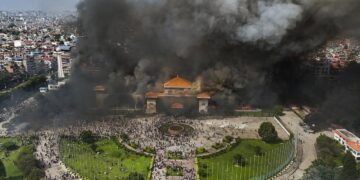The public health system is on strike to protest violence against medical workers
The move has been extended to all general, geriatric, psychiatric and rehabilitation hospitals and health management systems in the country, the Israeli Medical Association said in a statement.
It starts at 7 am and runs 24 hours a day. The strike continued despite Moshe Bar Siman-Tov, director-general of the Ministry of Health, asking for an argument to shut it down.
Sites will operate on a weekend schedule and offer reduced services only. The IMA will operate an Exceptions Committee to decide on special individual cases. Outpatient and walk-in clinics will also go on strike, and appointments for examination and treatment may be cancelled.
“Emergency dialysis services, intensive care, emergency rooms, delivery rooms, pre-term delivery and oncology care will remain operational during the strike,” the IMA said. IVF treatments will be reviewed by the Exceptions Committee.
HMOs and district health centers are also expected to reduce their operations, gastro clinics for non-postponable operations, day care, oncology care and late check-up for pregnant women.
“Despite the increase in violence and the number of incidents of violence, the Ministry is making adequate efforts to eliminate the incidents of violence neither the employer nor the health department,” the IMA said.
The union is demanding more security guards and police at hospitals and giving them more powers against criminals. The union also demanded stricter punishment for those who assaulted medical staff. It has warned that further strikes will be called if no progress is made within weeks. The violence has also led to sporadic strikes at hospitals and medical centers in the past.
Health Ministry Deputy Director General Sefi Mendlovic told Cannes public broadcaster that doctors have a legitimate right to demand safer working conditions, but assessed that the strike would not be effective as a platform set up last year to implement change called for an end to violence. . Implementation of the recommendations has begun.
“There will be violence in the future, but with the measures we have started to adopt it can be greatly reduced and the attackers will be given prison terms,” Mendlovic said.
Khan said one of the IMA’s demands from the forum on Sunday was that police and security guards posted at hospitals could treat criminals on the spot. The statement said the legal aspects of the request were being examined.
If no significant steps are taken to improve the safety of medical workers within a few weeks, the union will call for more strikes, IMA President Zion Hage told Ynet
Her comments came on the same day a doctor was attacked at a women’s health clinic in Acre. A man accompanied by his wife slapped the doctor several times and threw objects at him, asking him to leave the room during the test, Ynet reported. The man was arrested.
Last week, police arrested a 17-year-old patient at a women’s health center in Ramle, who was suspected of assaulting a doctor with brass knuckles and kicking him in the head. A doctor needs treatment at the nearest hospital.

The day before, Soroka Medical Center was shut down for two hours after the parents of a 15-month-old boy who was being treated at the hospital physically assaulted a pediatrician.
Cases of violence against medical staff are not uncommon in Israel. Last June, the doctors’ union announced a two-day strike to protest violence against doctors and the government’s failure to implement a plan to deal with such incidents.
Last May, amid rising violence against medical staff, the finance ministry approved a budget to deploy police officers at 28 hospitals across the country.
The strike comes amid Israel’s absence of a health minister after Prime Minister Benjamin Netanyahu mocked Arya following a high court ruling that he was ineligible to serve as a minister because of his previous criminal convictions.
















